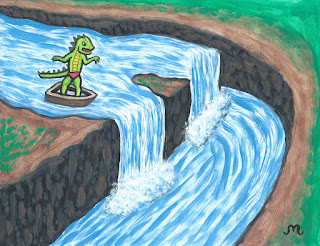Why Haven't We Found Any Aliens?
In 1950, famed physicist Enrico Fermi put forth what is now known as the Fermi Paradox: if alien civilizations exist in our galaxy, and if at least some of these civilizations have developed interstellar travel, why haven’t we come across them?
The paradox depends on a couple of important “ifs.” First, that extraterrestrial life exists, and second, that extraterrestrial civilizations are technologically advanced to travel between stars in our galaxy. While both of these conditions may seem farfetched, in truth, they are highly likely.
Billions of Sun-like stars exist in the Milky Way, millions of which host Earth-like planets and some of them have no doubt developed their own life forms. Furthermore, Earth is a relatively young, 4.5 billion years old planet and it took life fewer than a billion years to develop.
Considering the fact that the Universe is over ten billion years old, there’s certainly been more than enough time for intelligent life to develop elsewhere in our galaxy. A civilization that has progressed at even a hundredth the pace of evolution on earth for a billion or a million more years would seem absolutely god-like to us.
So, back to the original question: where are the aliens?
One proposed explanation to the paradox is the Rare Earth hypothesis, which holds that abiogenesis (the origin of life) is so improbable and rare that Earth is one of only a few planets in the galaxy on which intelligent life has developed. However, this “Earth exceptionalism” has come under attack by critics who point out that many of the factors deemed necessary for life by the hypothesis, such as plate tectonics, oxygen, and a large moon, may not actually be required for abiogenesis.
Another, more chilling, explanation is that all intelligent life is doomed to destroy itself at some point in its development. Today, as our technological sophistication continues to increase, so too does the likelihood of our self-extermination due to anything from artificial intelligence to climate change to war. Thus, extraterrestrial civilizations have already destroyed themselves long before we are able to detect them.
However, the most interesting and my personal favorite explanation is that we haven’t found any traces of extraterrestrials because they don’t want to be found! Think about it, if we find an alien civilization, the discovery can either lead to a potentially catastrophic war or new, friendly neighbors that we can very well live without. Thus, any self-preserving civilization will stay silent to avoid detection.
As of now, this is just conjecture and all we can do is sit, wait, and observe.
SOURCES:
The paradox depends on a couple of important “ifs.” First, that extraterrestrial life exists, and second, that extraterrestrial civilizations are technologically advanced to travel between stars in our galaxy. While both of these conditions may seem farfetched, in truth, they are highly likely.
Billions of Sun-like stars exist in the Milky Way, millions of which host Earth-like planets and some of them have no doubt developed their own life forms. Furthermore, Earth is a relatively young, 4.5 billion years old planet and it took life fewer than a billion years to develop.
Considering the fact that the Universe is over ten billion years old, there’s certainly been more than enough time for intelligent life to develop elsewhere in our galaxy. A civilization that has progressed at even a hundredth the pace of evolution on earth for a billion or a million more years would seem absolutely god-like to us.
So, back to the original question: where are the aliens?
One proposed explanation to the paradox is the Rare Earth hypothesis, which holds that abiogenesis (the origin of life) is so improbable and rare that Earth is one of only a few planets in the galaxy on which intelligent life has developed. However, this “Earth exceptionalism” has come under attack by critics who point out that many of the factors deemed necessary for life by the hypothesis, such as plate tectonics, oxygen, and a large moon, may not actually be required for abiogenesis.
Another, more chilling, explanation is that all intelligent life is doomed to destroy itself at some point in its development. Today, as our technological sophistication continues to increase, so too does the likelihood of our self-extermination due to anything from artificial intelligence to climate change to war. Thus, extraterrestrial civilizations have already destroyed themselves long before we are able to detect them.
However, the most interesting and my personal favorite explanation is that we haven’t found any traces of extraterrestrials because they don’t want to be found! Think about it, if we find an alien civilization, the discovery can either lead to a potentially catastrophic war or new, friendly neighbors that we can very well live without. Thus, any self-preserving civilization will stay silent to avoid detection.
As of now, this is just conjecture and all we can do is sit, wait, and observe.
SOURCES:
https://80000hours.org/podcast/episodes/anders-sandberg-fermi-paradox/
This blogpost was co-authored by Alex Xie



Great work and if you have time just try to google about "Boriska Kripyanovich","The wow signal","Cave painting in Charama, Chattisgarh, India".
ReplyDeleteI guess it would help.